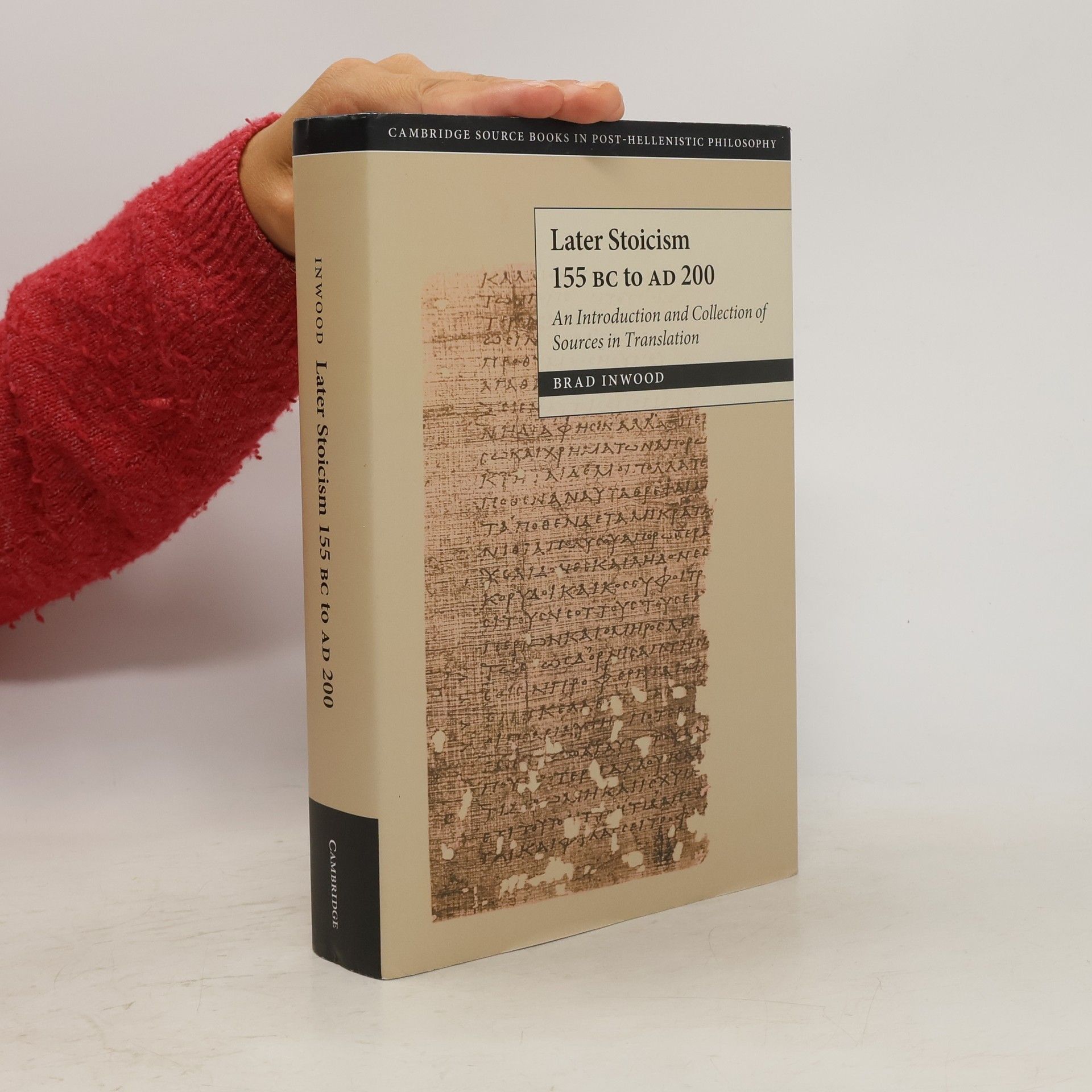Seneca details the good and bad behavior of those who receive benefit from others. He argues that you can give some one help and do them more harm than good by how you give and what you give. The receiver of the benefit also has a duty to pass on the benefit in their own way and to ameliorate the harmful benefit to the best of their ability. He also explains the levels and rewards of benefits.
Brad Inwood Livres
Brad Inwood est un spécialiste de premier plan de la philosophie antique, mettant un accent particulier sur le stoïcisme et les présocratiques. Son travail explore les subtilités de l'éthique, de la psychologie morale et de la pensée philosophique ancienne, se penchant sur les questions fondamentales de l'action et de la cognition humaines. L'approche analytique d'Inwood éclaire des textes et des idées clés qui ont façonné l'héritage philosophique occidental, offrant aux lecteurs une exploration captivante de la formation des anciennes théories éthiques.





Stoicism : A Very Short Introduction
- 136pages
- 5 heures de lecture
"Stoicism is two things: a long past philosophical school of ancient Greece and Rome, and an enduring philosophical movement that still inspires people in the twenty-first century to re-think and re-organize their lives in order to achieve personal satisfaction. Brad Inwood presents the long history that connects these."-- Provided by publisher
This volume features original articles covering various aspects of ancient philosophy, including in-depth discussions and critical reviews of significant works. Published biannually, it offers substantial contributions to the field in both hardback and paperback formats, making it a valuable resource for scholars and enthusiasts alike.
The most comprehensive collection of passages from later Stoic thinkers, providing fresh translations and up-to-date commentary.
Diese Einführung in den Stoizismus bietet einen Überblick über die Entwicklung der philosophischen Schule von ihren Anfängen im 4. Jahrhundert v. Chr. bis heute. Inwood beleuchtet die Rezeption in der westlichen Tradition und zeigt den gemeinsamen Kern philosophischer Einsichten zwischen antiken und modernen Stoikern auf.